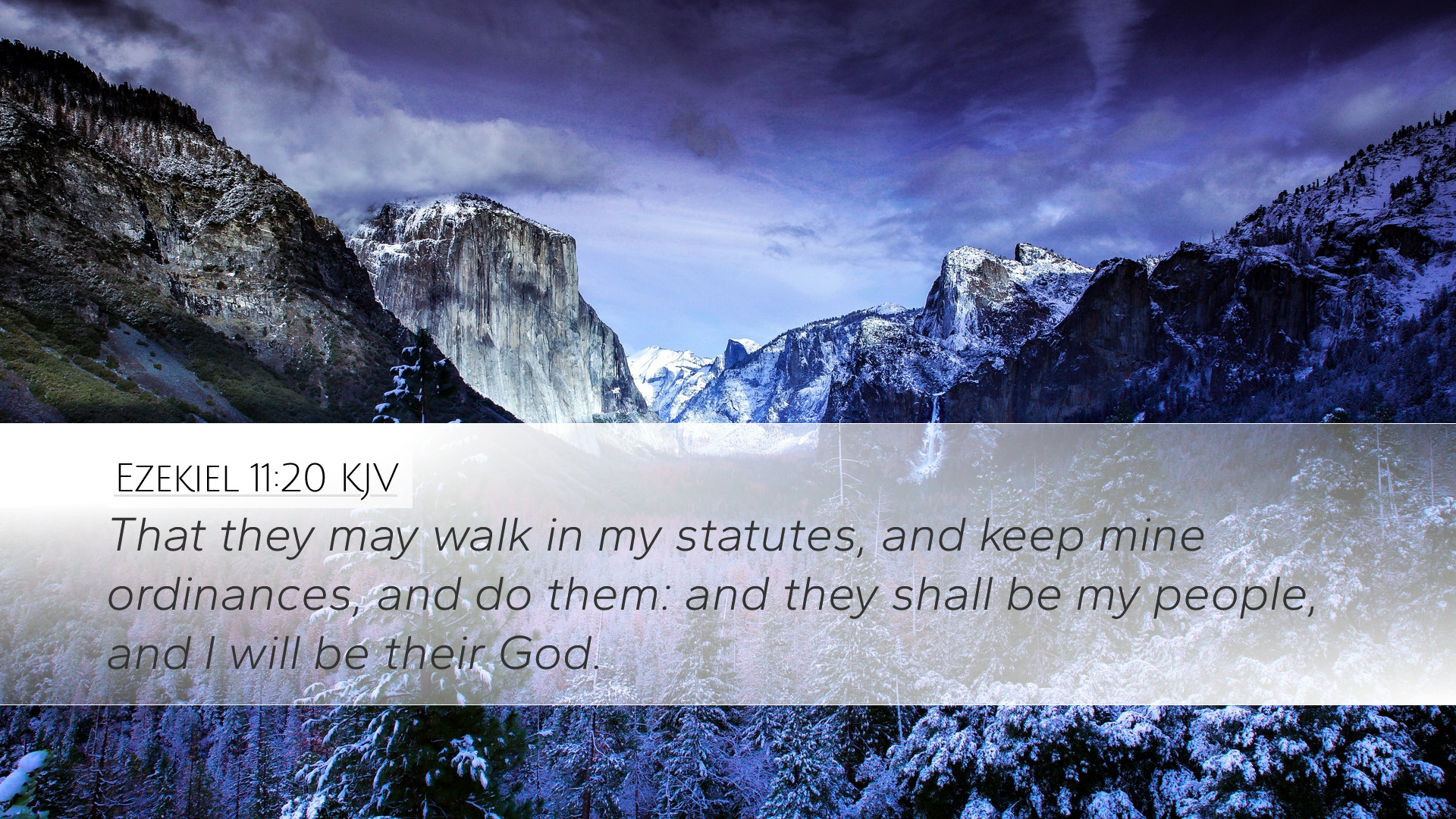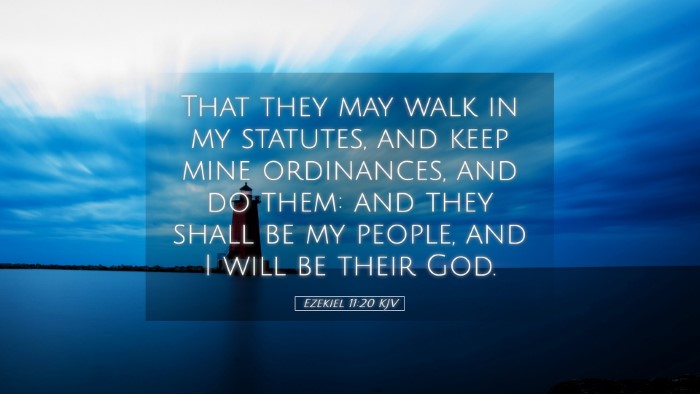Ezekiel 11:20 Commentary
Verse Text: "That they may walk in my statutes, and keep mine ordinances, and do them: and they shall be my people, and I will be their God."
Contextual Overview
The book of Ezekiel is set against a backdrop of Israel's exile in Babylon. The prophet Ezekiel, called to minister to a people in spiritual and national disarray, speaks words of judgment, hope, and restoration. Ezekiel 11:20 forms part of God's promise to restore His people after the judgment they have faced. This section emphasizes the relationship between obedience and belonging to God.
Insights from Commentaries
Matthew Henry's Commentary
Matthew Henry highlights that this verse encapsulates the essence of the covenant relationship between God and His people. The commandment to "walk in my statutes" signifies a life characterized by obedience and righteousness. Henry emphasizes that such a life is the mark of those who are truly God's people. He notes:
- Obedience is essential to identity: Belonging to God includes a commitment to living according to His statutes.
- Divine relationship: The phrase "they shall be my people, and I will be their God" reflects the reciprocal relationship God desires with His followers.
Albert Barnes' Notes on the Bible
Albert Barnes provides a detailed analysis emphasizing the transformative nature of God's promise. He states that the new heart and spirit given to God's people will enable them to perform His will effortlessly. Barnes elucidates the following points:
- Transformation of the heart: An essential aspect of this verse is about the inner change that God brings about in His people, enabling their obedience.
- Collective obedience: The community aspect of faith is paramount. The promise addresses a nation rather than just individuals, indicating a collective return to God’s ways.
Adam Clarke's Commentary
Adam Clarke focuses on the prophet's role in conveying God’s expectations and promises. Clarke discusses the significance of statutes and ordinances as reflections of God's character and truth. Key takeaways include:
- Statutes as a guide: Clarke argues that God's statutes serve as a moral compass for believers, guiding them in their daily interactions.
- This verse as a covenant promise: Clarke sees this text as part of the broader covenant where God reassures His people of His love and commitment despite their failures.
Theological Implications
The theological implications of Ezekiel 11:20 are profound and far-reaching:
- Obedience and Belonging: The verse indicates that the relationship with God is conditioned upon obedience. This invites deep reflection on how believers view their walk with God today.
- The Role of the Holy Spirit: Seen in light of the New Testament, the promise of a new heart foreshadows the work of the Holy Spirit who enables believers to fulfill God's requirements.
- Restoration and Hope: For pastors and theologians, this verse serves as a reminder of God's redemptive plan not only for individuals but for communities and nations.
Application for Believers
In conclusion, the message of Ezekiel 11:20 is one of profound hope and expectation. As modern-day believers strive to align their lives with God's statutes, several applications emerge:
- Pursuing Holiness: Believers are called to reflect on their personal and communal habits in light of God’s statutes.
- Empowered Living: Recognizing the role of the Holy Spirit empowers Christians to live in obedience not through mere willpower but through divine enablement.
- Community Responsibility: The church today must embrace its identity as God’s people, fostering a culture of obedience and love in community life.
Conclusion
Ultimately, Ezekiel 11:20 is not merely an ancient promise; it is a living call for God's people to embrace their identity as His children, rooted in obedience and nourished by His faithfulness. As such, this verse transcends time, speaking to the hearts of pastors, theologians, and every believer.


